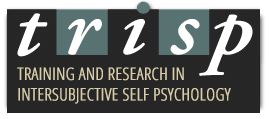With the rise of mother-infant observation, attachment research, and the relational turn, theories of development and dyadic co-regulation have become central to contemporary clinical theory and practice. Alongside the emergence of developmentally informed relational approaches is a “decolonial turn” calling for greater attention to the social, cultural, and political dimensions of psychoanalytic theory and practice. While decolonial perspectives in contemporary psychoanalysis have long drawn on relational theories, decolonial frameworks have yet to be integrated into theories of development. This presentation will use key examples from the literature to illustrate the limitations of developmental thinking, and draw on contemporary research and decolonial theory to distinguish between two neurocognitive models of relatedness—a dyadic model primarily oriented toward two-person, mutual regulation, and a triadic model oriented toward communal norms and systems of hierarchy. Given the literature’s prioritizing of the former, a decolonial approach to development integrating the latter will be offered. By going beyond a two-person, dyadic model, this approach helps clarify the impact of the social surround on development, with implications for clinical practice.
This meeting will take place online via Zoom. Registrants will be emailed a Zoom link with their confirmed registration and prior to the event.


 Find Us on Facebook
Find Us on Facebook